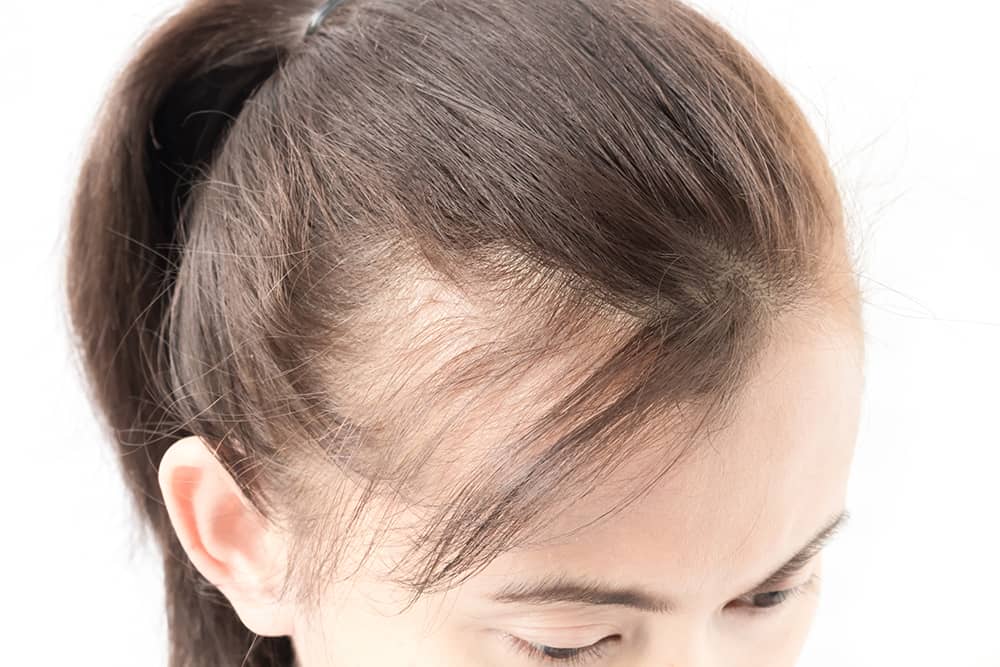Aytyapi Insights
Exploring the latest trends and updates in technology and lifestyle.
Shedding Light on Hair Loss: What You're Not Seeing
Uncover the hidden truths about hair loss and discover solutions you never knew existed! Don't miss out on crucial insights.
Understanding the Hidden Causes of Hair Loss: Beyond Genetics
While genetics plays a significant role in hair loss, there are numerous other factors that can contribute to this common issue. One of the often-overlooked causes is hormonal imbalance, which can result from various conditions such as thyroid disorders or polycystic ovary syndrome (PCOS). Additionally, the impact of stress, both physical and emotional, should not be underestimated, as it can lead to a type of hair loss known as telogen effluvium. This condition triggers hair follicles to enter a resting phase, causing an increased shedding of hair. Beyond these factors, dietary deficiencies, particularly in nutrients like iron and biotin, can weaken hair shafts, making them more susceptible to thinning and breakage.
Moreover, lifestyle choices significantly affect hair health. For example, excessive use of hair styling products or heat can damage hair and exacerbate loss. Poor scalp health due to issues like dandruff or psoriasis can obstruct hair follicles, inhibiting new hair growth. Another critical element is the impact of certain medications, including those for blood pressure, depression, and hormonal treatments, which can result in temporary or permanent hair loss. Understanding these hidden causes can empower individuals to take proactive steps in addressing their hair loss concerns, leading to more effective treatments and preventative measures.

The Role of Nutrition in Hair Health: What You Might Be Missing
Nutritional deficiencies can significantly impact the health of your hair, leading to issues such as thinning, brittleness, and even hair loss. Key nutrients like vitamins A, C, D, and E, as well as biotin and zinc, play a crucial role in the hair growth cycle and the maintenance of healthy, vibrant locks. Incorporating a variety of nutrient-rich foods in your diet—such as leafy greens, nuts, and fish—can provide your hair with the support it needs to thrive. If you're not seeing the desired results in hair health, consider evaluating your dietary choices and consulting with a nutritionist for tailored advice.
Additionally, hydration is another critical yet often overlooked factor in maintaining hair health. Water helps to transport essential vitamins and minerals to the hair follicles, ensuring they receive the nutrients necessary for optimal growth. Experts recommend drinking at least eight glasses of water a day to keep not only your body but also your hair well-hydrated. Moreover, adding foods with high water content, such as cucumbers and watermelon, can further enhance your hair's moisture levels. By focusing on a well-rounded approach to nutrition, you can help prevent common hair problems and promote overall hair vitality.
Is Stress Really Causing Your Hair Loss? Exploring the Connection
Stress is a common experience that many people face in their daily lives, and it can have various effects on the body, including hair loss. While some may dismiss hair thinning as a mere aesthetic issue, it can significantly impact an individual’s self-esteem and overall well-being. Research has shown that there is a connection between stress and hair loss, especially in conditions such as telogen effluvium, where hair follicles enter a resting phase and subsequently shed more than usual. In this way, understanding the distinction between normal hair loss and that triggered by stress can be crucial for those experiencing this troubling symptom.
Beyond the immediate effects of stress, long-term exposure can lead to chronic conditions that may further exacerbate hair loss. When the body is under persistent stress, it produces higher levels of cortisol, a hormone that can negatively affect hair growth cycles. To address this connection, it’s essential to implement effective stress management techniques, such as mindfulness, exercise, or therapy. By taking proactive steps to reduce stress levels, individuals may not only improve their mental health but also promote healthier hair growth in the long run.